Search
Search Results

Definition
Germ Theory
The germ theory, which emerged in the late 19th century, demonstrated that microscopic germs caused most human infectious diseases. The germs involved included bacteria, viruses, fungi, protozoa, and prions. Louis Pasteur (1822-1895), a French...
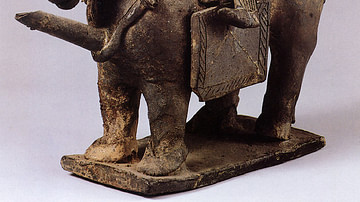
Article
The Horse-rider Theory in Ancient Japan
The 'horse-rider theory' is a controversial proposal that Japan was conquered around the 4th or 5th century CE by a culture from northern Asia to whom the horse was especially important. Although archaeological evidence and genetics point...

Interview
Information & Communication Technologies in Cultural Heritage & Tourism
Information and communication technologies (ICT) are revolutionizing the ways in which the public interacts, understands, and appreciates the importance of cultural heritage around the world. They are additionally enabling sustainable tourism...
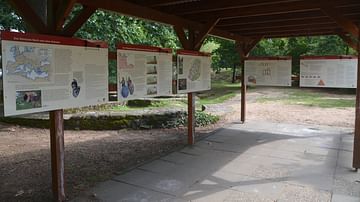
Image
Limes Information Boards
Limes Information boards in front of the bathhouse of Rückingen Roman Fort (German: Kastell Rückingen) on the Wetterau Limes, north of Frankfurt am Main in Germany. The Wetterau Limes is of the Upper Germanic-Rhaetian Limes.

Image
The RömerWelt Limes Information Centre
The RömerWelt is the official Limes Information Centre for the state of Rhineland-Palatinate. It is located in Rheinbrohl, south of Koblenz in Germany. RömerWelt introduces visitors travelling on the German Limes Road to the broad topic of...
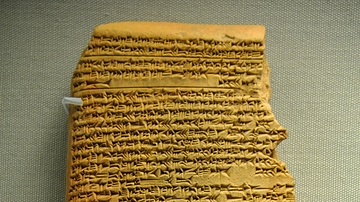
Image
The Theory of Omens
On this clay tablet, the author has listed the titles of cuneiform omen collections drawn from celestial and terrestrial phenomena. Rather unusually, he explains that the validity of an individual omen depends on the particular month and...
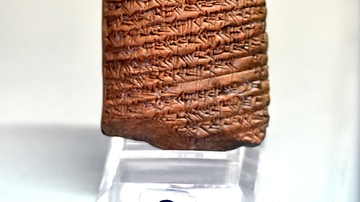
Image
Geometric-Algebraic Theory Clay Tablet from Tell al-Dhabba'i
This clay tablet narrates a geometric-algebraic theory of how to make a solution for a mathematical problem. The conclusion applies a theory very similar to the Pythagorean theorem. From Tell Tell al-Dhabba'i, Iraq. Old-Babylonian period...
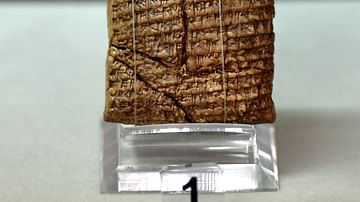
Image
Geometric-Algebraic Theory Clay Tablet from Tell Harmal
This clay tablet narrates a geometric-algebraic theory of angles and triangles, similar to to the theory of Euclid of Alexandria, the father of geometry (lived c. 300 BCE). From Tell Harmal (ancient Shaduppum), Iraq. Old-Babylonian period...

Definition
Indus Valley Civilization
The Indus Valley Civilization was a cultural and political entity which flourished in the northern region of the Indian subcontinent between c. 7000 - c. 600 BCE. Its modern name derives from its location in the valley of the Indus River...

Video
The Political Theory of Thomas Hobbes: The Sovereign and the State
We all live in states today, and Thomas Hobbes has a good claim to have been the first person to articulate this concept in its modern sense. The intention of Hobbes’s civil science was to lower the temperature of politics, and his concept...